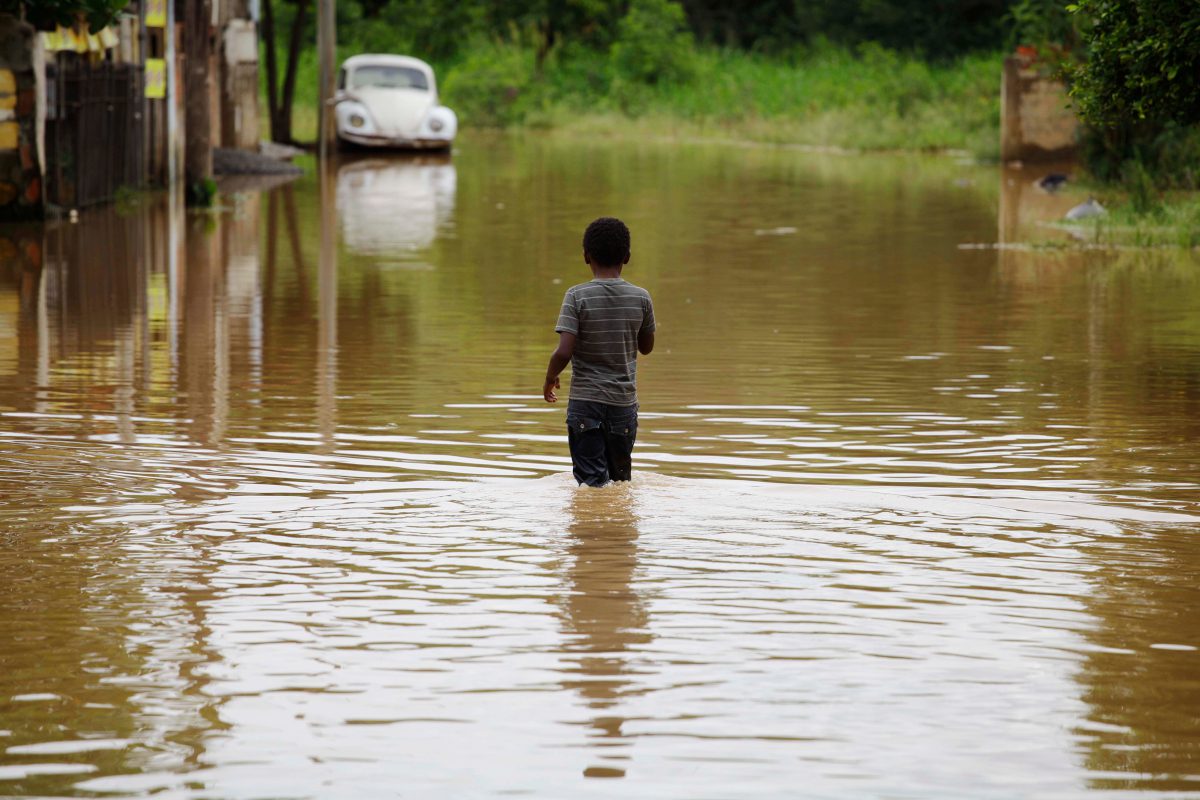
A University of Glasgow project that’s increasing community resilience and enhancing the capacity of residents of flood-prone areas in Brazil to take protective action has been announced as an Economic and Social Research Council (ESRC) Celebrating Impact Prize finalist.
The Celebrating Impact Prize, now in its 11th year, is an annual opportunity to recognise the success of ESRC-funded researchers in achieving and enabling outstanding economic or societal impact from their research.
The ‘Waterproofing Data’ project, which was ESRC-funded through the Global Challenges Research Fund, developed an innovative approach combining community-generated data and analytics to increase community resilience, and enhance the capacity of residents of flood-prone areas in Brazil to take protective action.
Project lead João Porto de Albuquerque is Professor in Urban Analytics at the University of Glasgow and based at the ESRC-funded Urban Big Data Centre. He said:
“I’m delighted with this nomination that recognises our innovative approach of combining citizen science and analytics.
“There is a lack of information about how heavy rainfall impacts communities at a local level. Our goal was to not only generate and circulate more traditional meteorological data, such as rainfall measurements, but also rethink and broaden the types of data and ways it is gathered. Rather than just gathering data, we co-designed methods with the communities that incorporated their priorities about flooding and empowered them as knowledge co-producers. Engaging with the lived experiences of flooding – people’s memories of what happened and ways they coped – provided an opportunity to tackle the problem in different ways.
“While this research was conducted in Brazil, the lessons learned about engaging citizens in data gardening, a method where researchers and citizens collaborate at every stage of the data production and use, showed this approach could be applied to empower community-led climate action in other regions across the world, especially in areas with significant physical or social vulnerability in face of increasing risks of extreme weather events.”
The international team of researchers with multiple disciplinary backgrounds from Brazil, Germany and the UK worked with partners at Brazil’s National Center for Monitoring and Early Warning of Natural Disasters (CEMADEN) and Brazilian higher education institution Fundaçao Getulio Vargas to engage communities in the process of ‘data gardening’.
The Waterproofing Data app has now been used by more than 410 ‘citizen scientist’ reporters spread across more than 20 cities in Brazil’s continental territory. It sparked new projects championed by CEMADEN that will bring the Waterproofing Data approach to all school students living in flood-prone areas in Brazil, benefiting more than 8 million Brazilian citizens who are estimated to live in disaster-prone areas.








